Listen to this story
–:–
–:–
A complete how-to on writing letters to others to keep good relationships strong, repair hurt feelings, and help you grow in unexpected ways
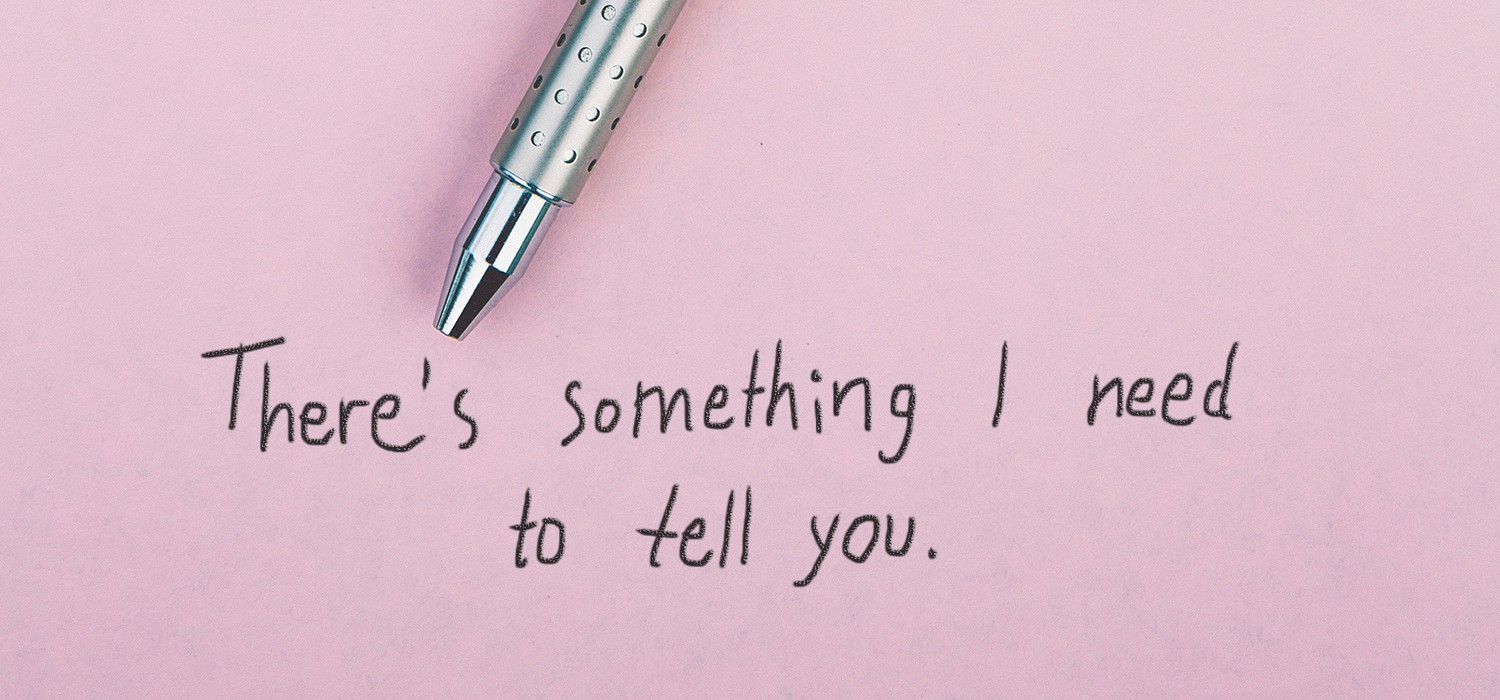 Original photo by Markus Spiske on Unsplash
Original photo by Markus Spiske on Unsplash
What is the main thing keeping you from having amazing relationships?
What?s keeping you from being an unforgettable friend? An outstanding husband? An inspiring sister?
According to Stephen Covey, author of ?The 7 Habits of Highly Effective People?, the reason why most relationships fail is because we focus on changing our superficial behaviors and attitudes before addressing the way we perceive the relationship itself.
We tackle the leaves of the problem instead of touching the roots.
We fiddle with effects instead of addressing the causes.
In other words, we say nice things without knowing how to communicate; we buy our children gifts as compensation for our lack of attention; we invest on ?quick fixes? and make empty commitments, not realizing that the key to successful relationships lies in loving, consistent maintenance.
Why do we do this?
Sometimes it?s because we want to avoid facing and expressing our challenging emotions (who likes to make time to discuss the root of their biggest fears?).
Another reason is that doing maintenance takes time (and let?s be honest ? we?re all busy).
However, the most common reason is that most of us simply don?t know how to do it. And that?s why in this article I will share with you a simple tool that has changed my relationships forever:
Writing to people.
But not just any kind of writing.
Sure, we all write quick birthday cards and leave nice Instagram comments on our friends? pictures once in a while. But how much closer does that really bring us to our loved ones? Does that count as ?loving, consistent maintenance??
My answer is no.
The good news is, I have been extensively testing a few writing practices which, if applied correctly and continuously, can help you:
- Become a better friend;
- Communicate more openly;
- Solve conflict in a compassionate and effective way;
- Make your exchanges more meaningful;
- Encourage other people to open up to you.
And the best thing is, you don?t need to be a professional writer in order to apply these practices. You don?t even need to be a good writer. In order to apply the ideas in this article, all you need is:
- The willingness to be vulnerable and face your own emotions, and
- A desire to make your relationships more authentic and fulfilling.
The Lost Art of Exchanging Long, Focused, Unbroken Pieces of Text
 Drawing by the author.
Drawing by the author.
In the first months of our relationship, my partner and I were living in different countries.
When we were discussing ways to keep long distance communication, one of the first things he told me was:
?I don?t use social media and I hate chatting.?
At first I was a bit skeptical, but we decided to give it a try. From then on, apart from the occasional voice call, our long distance communication was mostly restricted to two distinct formats:
- Long emails
- Handwritten letters
Although this might seem impossible ? and even ridiculous ? in a world where texting and constant updating are an inevitable part of our relationships, I believe this way of communicating was the reason why we stayed together (and remain together, more than 4 years later).
A recent study shows that sending too many texts can create some disconnects in committed relationships.
Researchers from Brigham Young University found that using texts to make important decisions or settle disagreements is associated with lower relationship quality from women?s perspective; for men, lower relationship quality seems to be connected with texting too frequently.
During our long distance relationship, my partner and I refrained from communicating with each other through texting, and instead sent each other a long email every second or third day.
The benefits were immense:
- By writing long, focused emails, we were able to go deeper and access complex thoughts that we would never be able to reach in a text or even a short conversation;
- As a consequence, writing those emails also served as a self-reflexive (and sometimes meditative) practice, allowing us to learn about ourselves in the process;
- As we knew that it would take the other person a day or two to get back to us, we avoided the anxiety of constantly checking for replies and we were able to focus on personal projects without distractions;
- The intervals between each email prevented us from getting bored of each other ? which sometimes happens when you communicate with someone exclusively via digital media ? because we always had something interesting and new to say;
- Because of the amount of time, focus and love we poured into our emails, we saw each piece of correspondence as something to be treasured: I remember setting aside intentional time to read his emails, and my heart jumped with excitement every time I saw his name on my inbox.
But there was one thing we treasured even more than long emails, and that was sending and receiving handwritten, palpable, physical letters.
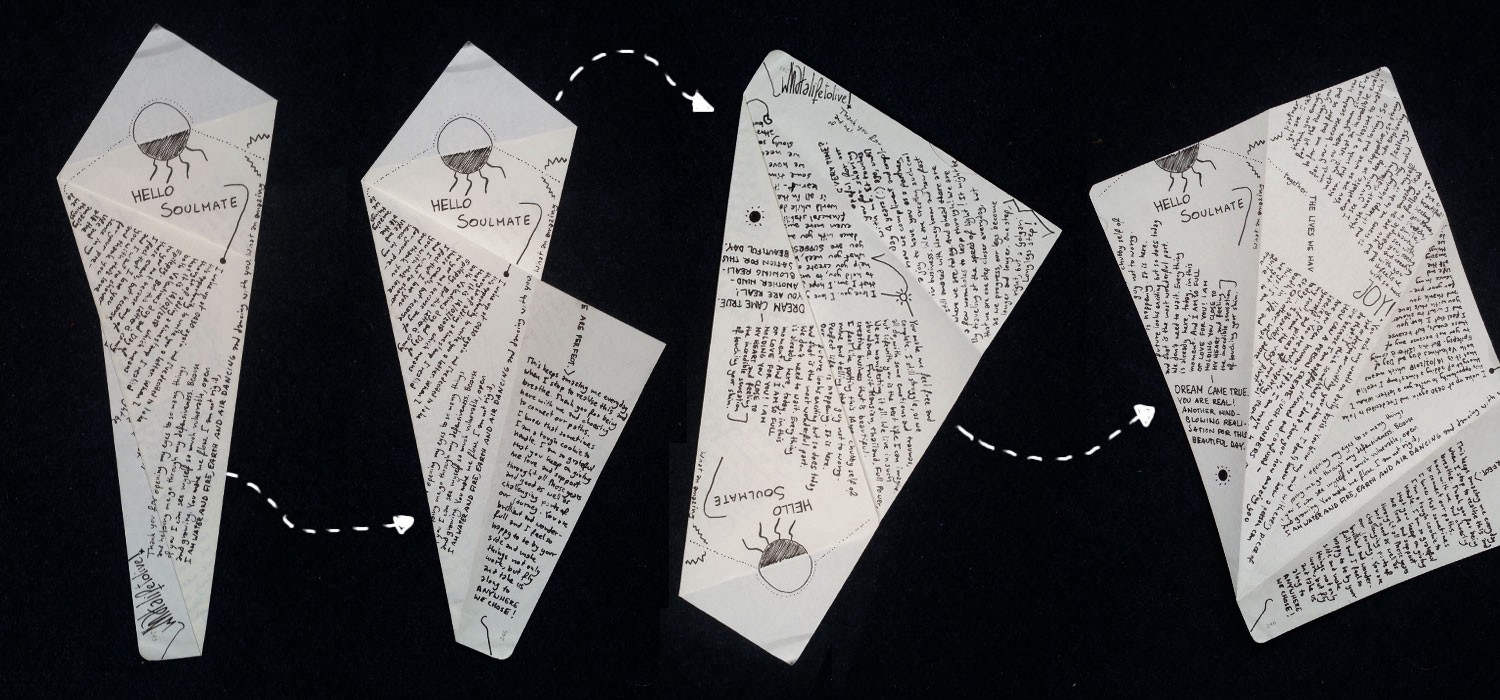 One of many creative letters my partner (still) surprises me with once in a while.
One of many creative letters my partner (still) surprises me with once in a while.
There is something special in crafting a long letter to someone you love. You actually get to see some of the other person?s personality through their handwriting. You don?t get distracted by notifications popping through the corner of your screen as you write. You get to touch, hold, feel and smell that other person?s message, which brings a whole new level of intimacy into your exchanges.
It doesn?t matter if it?s your lover, your younger brother or your old friend with whom you want to reconnect. When you dedicate focused time to write to people, they will feel valued and loved ? even if your grammar is imperfect and your structure inconsistent.
Also, this is not restricted to people who live far away from you. Even if my partner and I live together now, it still fills me with joy when I wake up to find a surprise love letter on my bedside table.
But what can you write about?
In the beginning, it doesn?t matter.
If you start writing or typing and do it for a long enough period of time, even if at first you feel stuck, your brain will eventually start making valuable connections and accessing gradually more interesting thoughts.
However, if you want to use your writing to powerfully address the root of your problems and create authentic relationship healing, then the next section is for you.
Communicating Emotions
A few years ago, a group of psychologists conducted a study called ?The Experimental Generation of Interpersonal Closeness?, which was later popularized by the article ?To Fall In Love With Anyone, Do This?.
By pairing up strangers and making them ask increasingly personal questions to each other, the scientists proved that ?escalating, reciprocal, personalistic self-disclosure? has the power to make people experience a greater degree of closeness.
In other words, when we compassionately exchange pieces of personal information with someone, we are closing the gap between us and becoming closer to each other.
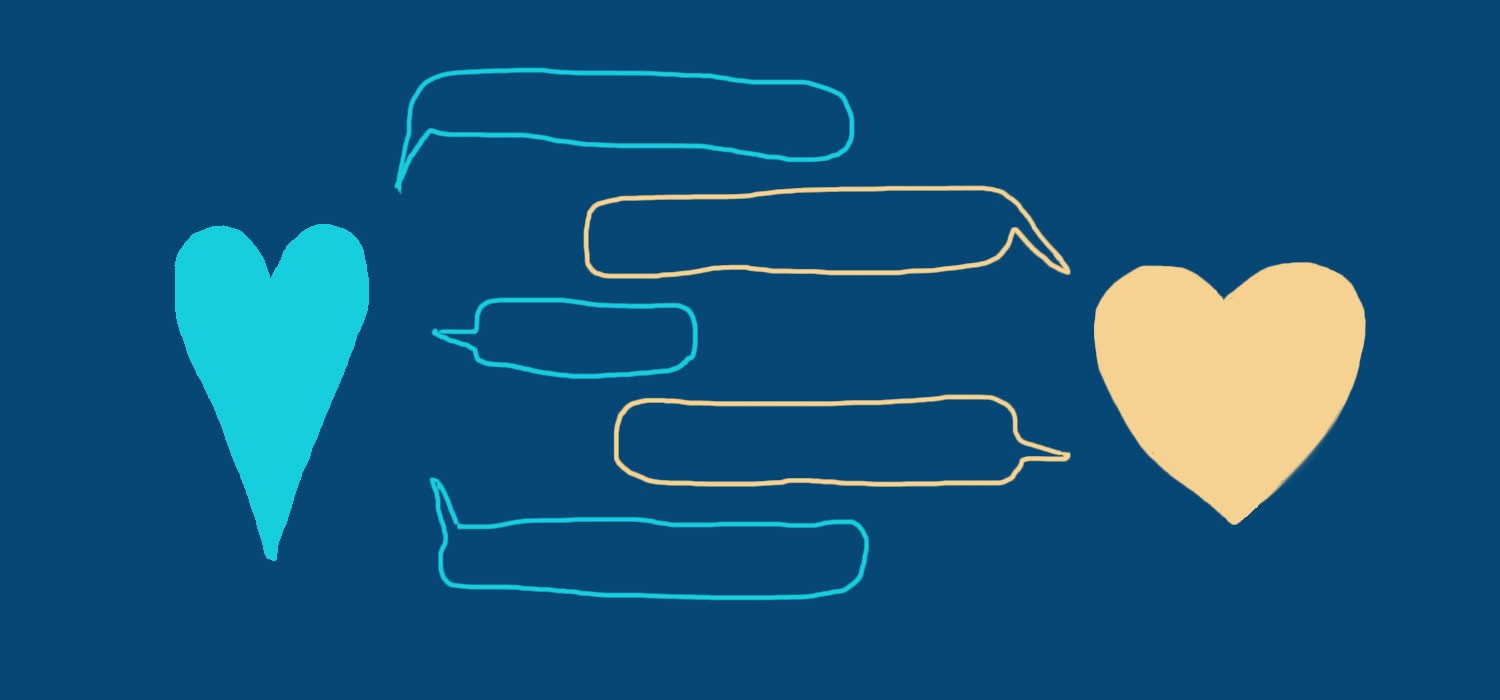 Drawing by the author.
Drawing by the author.
That?s exactly what I did a few months ago when an ongoing tension with a friend finally exploded with her sending me a very angry email.
When I first saw it, my instinct was to call her and get defensive, but I quickly stopped myself as I realized that this would only generate more anger and distance.
I knew that the key to settling the conflict was to tell her how I felt without blaming her for the situation, but in order to do that I had to calm my anger and get back to a place of mental clarity.
So I did the following: I asked her to meet me the next day; then I went for a walk to organize my thoughts, and when I came back I proceeded to structure my ideas the best way I knew how: with a pen and a piece of paper.
If you share, I will listen. If you listen, I will share.
According to Marshal Rosenberg, PhD psychologist and founder of Nonviolent Communication, there are two essential components of effective, compassionate communication:
- Honestly expressing our feelings and needs to others, and
- Empathically listening to other people?s feelings and needs.
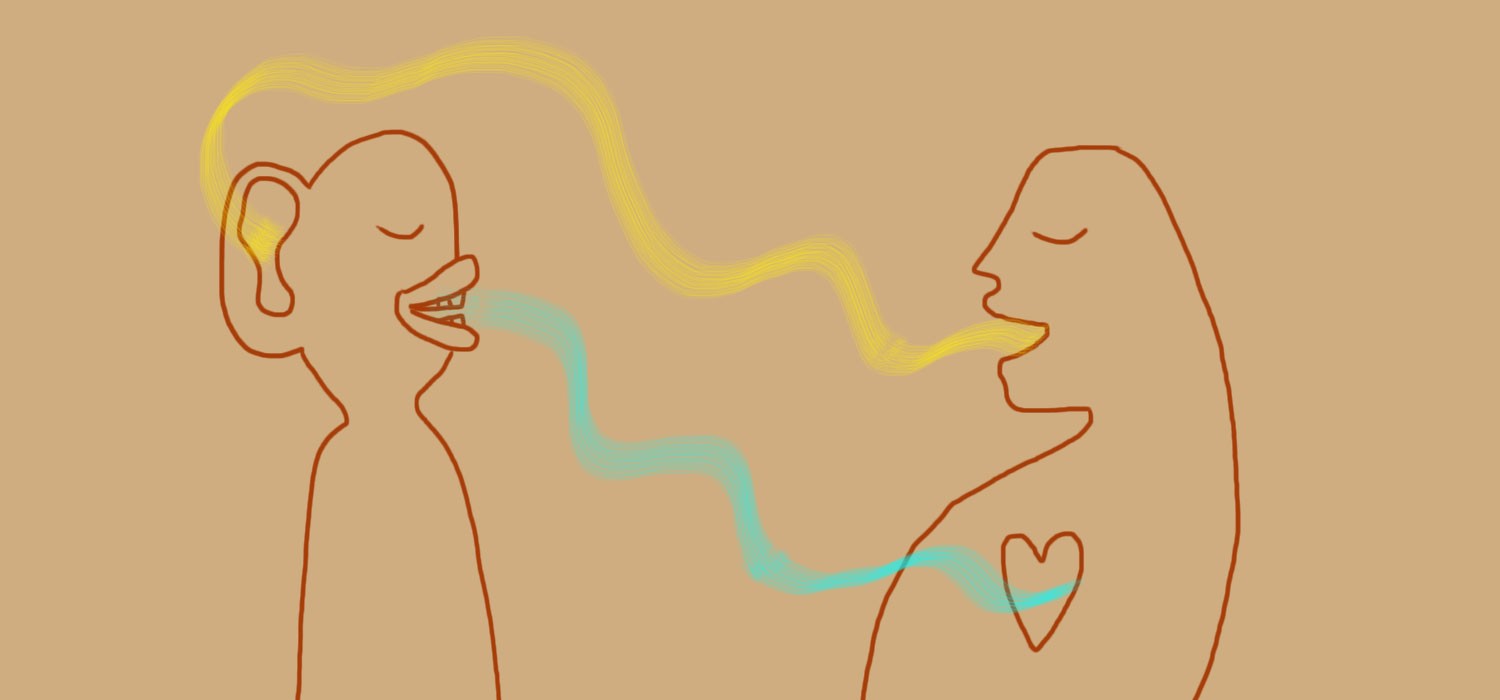 Drawing by the author.
Drawing by the author.
So I started my writing exercise by sharing my feelings from a personal point of view ? applying honest self-disclosure, without placing blame on my friend?s attitudes.
For example: instead of saying ?What you said was hurtful and disrespectful?, I wrote ?I felt really hurt when you called me ?immature?.?
After that, I read through her words and I made an effort to connect with the emotions behind them: ?What could she be feeling that made her say these things to me??
Sometimes this was really challenging ? especially when she threw pejorative adjectives at me. Most of us are deeply conditioned to always take other people?s words personally, but the key is to understand that we all feel vulnerable and hurt sometimes, and we say things we don?t really mean.
Therefore, I applied a written version of empathic listening, by trying to guess the real feelings and needs behind my friend?s words.
Example 1
Her words: ?You never say what you?re thinking, and that just shows how immature you are?.
My response: ?What I hear is that sometimes you feel frustrated and angry with certain things I say, because you wish you could understand me better. Is that right??
Example 2
Her words: ?I was tired after a full day of work, which for you is irrelevant since you?re leaving your job. I thought you might at least have the decency to show some understanding, but obviously it was too much for me to expect of you.?
My response: ?I see now that you were feeling very tired that day. And when you saw that I didn?t notice that, you felt a bit sad and lonely, because you just needed some support and warmth after a full day of work. Is that what it felt like to you??
Example 3
Her words: ?Your anxiety and your rush to retrieve that notebook you lent me made me realize that you must really hate spending time with me ? you could have at least invited me for a cup of tea and asked me to bring it then.?
My response: ?I see that you felt hurt and disappointed when I insisted in stopping by your place to retrieve my notebook. As you told me, you were in the middle of something important, and you wish I would have been more patient and understanding. I also see that you felt sad that I approached the situation with such rush: after all, we are friends, and you would like us to spend quality time together. I understand that, and I apologize for the pressure I might have triggered for you.?
After sharing my own emotions and making an attempt at empathizing with hers, I took one final step:
I expressed my intention and commitment to work on our relationship.
How?
First, I made a clear request as to how I would like her to support me in the future.
?I feel hurt when you use certain words and adjectives to describe me (such as calling me ?immature? or ?selfish?), as they seem unfair to me. Instead, I would like to ask you if you could simply address the concrete behaviors or words I used which made you upset, so that I can change them.?
Then, I expressed my availability to better support her, both by suggesting ideas of my own, and by remaining open to hear any requests she might have.
?It seems to me that sometimes you need more transparency and honesty from my side. I recognize that I often struggle with being open about my feelings, and I am willing to work on that. I also wanted to tell you that I do care about you, and I am interested in hearing about you; it?s just that sometimes I get too absorbed in my own problems, and I might come across as insensitive. Please feel free to tell me at any time ?Hey Silvia, I would really like to share something important with you now and I would like your full attention?. I will also try to be more mindful from now on. Is there any other way in which I could support you??
As agreed, the day after I received her email and wrote all these things down, we met in person to discuss the matter.
I asked her if I could open the conversation by reading my letter to her out loud, and I requested that she would listen from beginning to end without interruptions.
And that?s what we did. As for the outcomes of this little experiment, I can tell you that the conversation that followed my letter completely transformed my idea of how deep a friendship can go.
Her anger was gone, and so was mine. Suddenly, we both felt an irresistible drive to confess our faults to each other, and at the same time we both felt an unprecedented willingness to forgive and reassure.
It felt safe to share, and for the first time we really saw each other. For the first time, we opened up to each other, and for the first time, we both listened.
How to Use This Technique
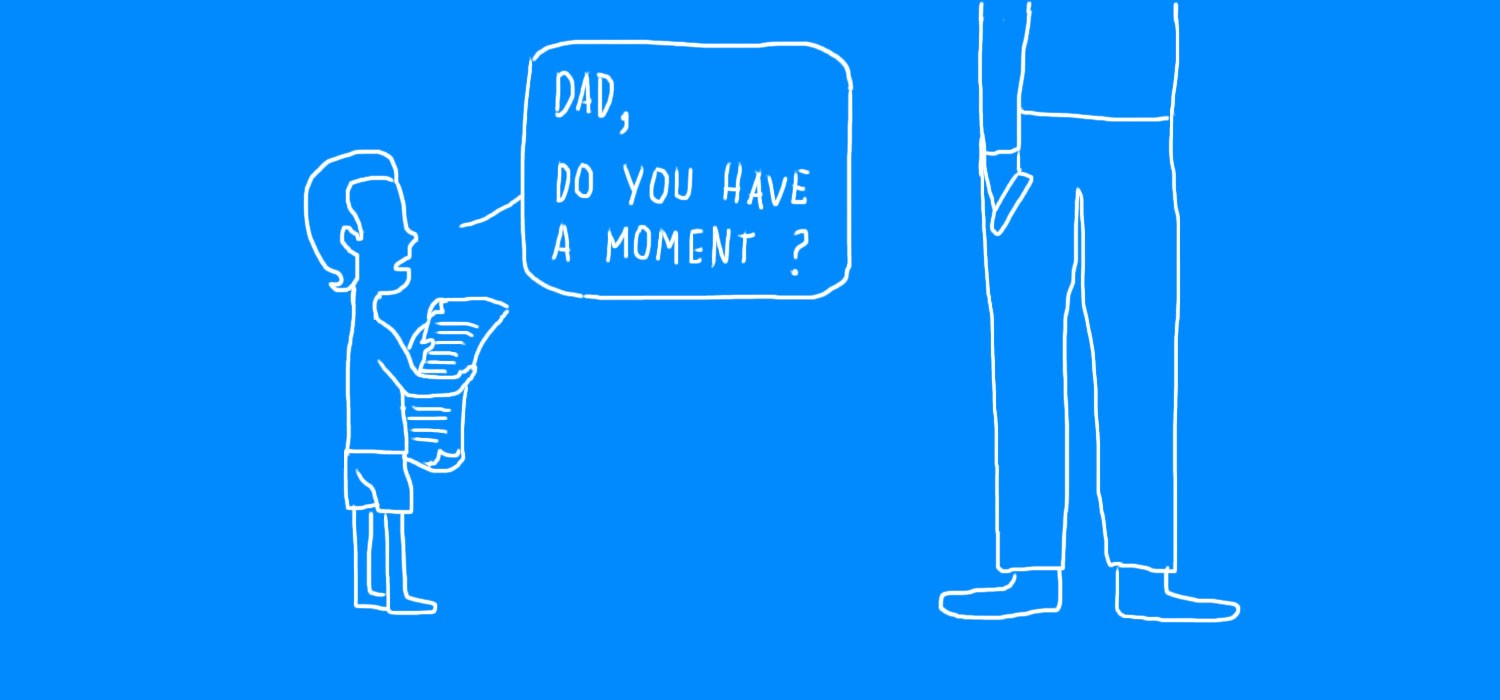 Drawing by the author.
Drawing by the author.
If you are feeling overwhelmed by everything you just read, don?t worry: it?s simpler than it seems.
The first thing you need to do is to expand your emotional vocabulary.
As the process I have just described is heavily based on the practice of Nonviolent Communication, I highly recommend you take a look at these resources on their website:
- List of feelings
- List of needs
Once you get familiarized with those, they will become a natural part of your written vocabulary, allowing you to better express what?s inside you as well as making others feel more understood.
When to use it
This process is especially useful for solving situations of conflict, but you can also use it to uncover underlying issues that you might sense in your relationships.
You can either write down all of it and give the letter to your loved one, or you can read it to them once it?s finished.
And now you might ask: why write everything down before bringing it to conversation instead of just saying it straight? Well, there are several reasons why writing can be a tremendous aid in this situation:
- It will keep you from blindly reacting to your anger and say things you might later on regret;
- It will help you organize your thoughts in a structured manner, giving you clarity and making it easier for the other person to understand;
- It will make it easier for you to open up and be vulnerable, as you will have expressed your emotions beforehand and now you just have to read what you wrote;
- It will help you remember important things that you might otherwise forget or ignore in the heat of the moment.
How to structure the letter
- Honestly express your feelings and needs.Without blaming the other person, share what is going on inside of you.
- Empathize with the emotions behind the other person?s words.?What might they be feeling that made them say this to me?? Don?t take it personally, and try to see the fragile human being behind their anger or unfairness. Repeat things back to them. Reassure them that you paid attention.
- Give them clear instructions on how to support you better.What would you like them to change in their future behavior?
- Show your availability to support them better.What are you willing to change in your future behavior that might improve your relationship with them? Offer to do that. And then ask them for their own suggestions.
With this methodology, you can finally address those issues that you never had the courage to voice out loud.
However, this tool works best for solving conflict. But what about your relationships that are already stable and peaceful ? can you use other types of writing to make them outstanding?
As you might have guessed, the answer is yes.
Expressing Gratitude and Appreciation
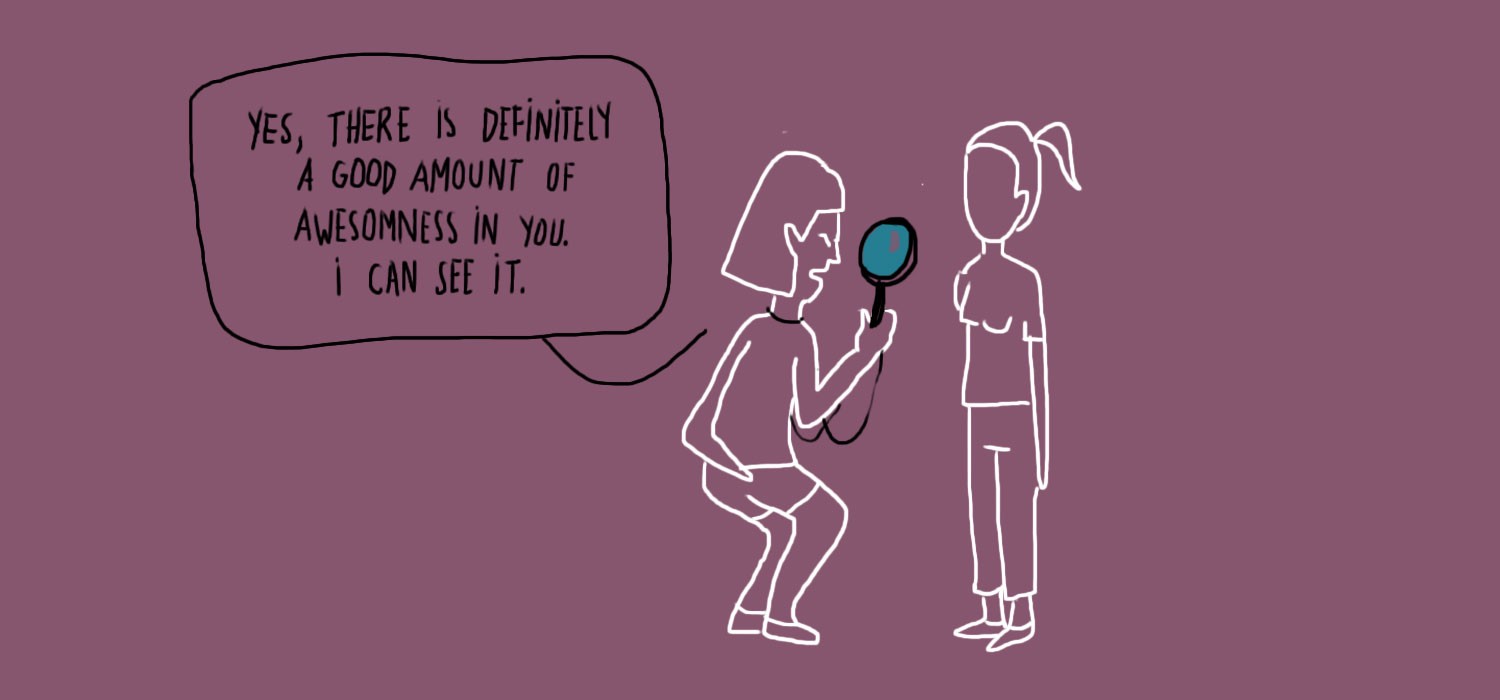 Drawing by the author.
Drawing by the author.
It?s not uncommon for a lot of us to constantly push ourselves to achieve more while failing to recognize the things we have already accomplished.
As a consequence of our negativity, we gradually give way to insecurities which we end up projecting onto people around us.
We subconsciously try to meet our need for validation through them; we compare ourselves to them and enter a competitive mentality; or we lash out at them, when deep down we are angry at no one but ourselves.
Eventually, this unhealthy pattern has the power to destroy any kind of relationship.
However, the good news is that it can be easily dismantled.
How? It?s simple: if the problem is that we forget to see what?s good about ourselves, then we just need someone to remind us.
The easiest way we can do that for our loved ones is to bring their attention to their individual qualities, their achievements and their strengths. In practical terms, this means to express our gratitude and appreciation.
There is a lot of research about the benefits that gratitude can have in relationships ? both to the ones expressing it and to the ones receiving it.
Despite knowing that, it can still be tough to express feelings?even those of appreciation ? especially towards the ones we love the most. How can we overcome our resistance and make gratitude and appreciation a part of our daily life?
The hidden power of thank you notes
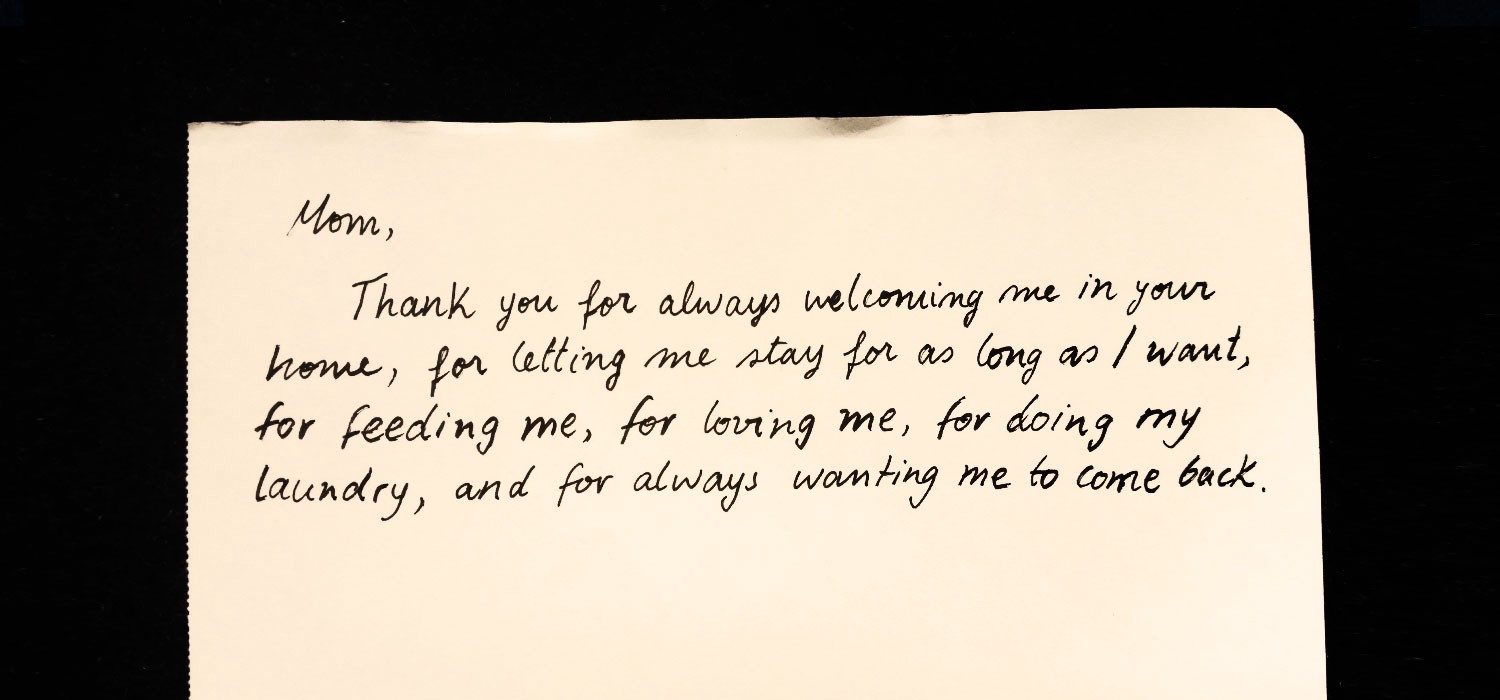
I have always struggled to reveal my feelings to my mother.
Despite knowing how important it is for her to be reassured that she is a wonderful parent ? which is absolutely how I feel ? for some reason I always felt awkward and uncomfortable expressing my appreciation to her out loud.
So I started writing it to her.
?Thank you for always welcoming me in your home, for letting me stay for as long as I want, for feeding me, for doing my laundry, and for always wanting me to come back.?
?Thank you for laughing with me. Thank you for finding my jokes funny, for joining my ridiculous random dances, for hiding in the closet to scare me when I get home, for playing Singstar with me, for having cultivated fun and play as core values in my life since the moment I was born.?
?Thank you for being so patient and always trying to understand me, even when we disagree. Thank you for listening to me. Thank you for reading this. Thank you for accepting that sometimes I struggle to express myself, and thank you for waiting until I can.?
As you can see, all I did was complete the stem ?Thank you for??. All I had to do was think about things that trigger in me genuine gratitude towards my mother, and repeat the sentence for as many times as possible.
And yet, despite its simplicity, the results from this small exercise were tremendous.
The more I wrote words of appreciation to my mother, the more pleasure this habit brought me and the more natural it felt to express them. Eventually, because I kept bringing my awareness to her best traits, my very perception of her changed, and my love for her grew.
Suddenly, her sadness started melting away, and so did my sense of guilt. After writing for a while, we became better at voicing our feelings to each other, and our relationship transformed. Nowadays, I can say that my mother is one of my best friends ? something I had never thought was possible before.
To do this yourself, simply grab pen and paper and let yourself quiet down for a bit of reflection. Start with ?Thank you for?? and fill in the rest of the sentence. Repeat this sentence until you feel you have expressed everything. When you are finished, give or send the letter to its recipient.
Chances are, you may feel that you are doing something for them (and you are). But you will likely be surprised at the positive impact it has on your own feelings and mood as well.
Transforming Yourself
There is a concept in psychology called ?self-signaling? ? a term introduced by psychologist and bestselling author Dan Ariely in his book ?The Honest Truth About Dishonesty?.
One of the ideas behind ?self-signaling? is that our actions determine who we are ? and not the other way around. If you act generous, you will become generous. If you constantly express your gratitude towards others, it starts becoming part of your personality, and you truly begin to feel it.
Soon after I started writing gratitude lists to my mother, I realized that I felt like expanding this practice to other relationships in my life:
- Old friends with whom I had been out of touch;
- New friends with whom I wanted to be closer;
- People in my life with whom I had unresolved issues;
- Other family members;
- My partner;
- People I work with.
I?ve had a friend cry as she read my birthday card at her dinner party. I had people tell me that my words had reached them at exactly the right time, inspiring them to take steps to improve their lives.
A few years ago, I could barely get myself to say ?thanks?. But as I eased my way into gratitude by expressing it through written words, it became an intrinsic part of me, and it triggered profound, permanent improvement in my relationships.
The Gift of Growth
If I would have to name the biggest way in which writing has transformed my relationships, it would be through the gift of self-awareness.
Sure, writing might not allow for the same spontaneity of a face-to-face conversation, reciprocity or reading body language. But it gives us an opportunity to digest our emotions and consciously respond to them, organize out thoughts, and find new ways into the fabric of our relationships.
The techniques I have described above have changed not only my relationships, but also the very essence of my being.
You can start applying them to your own life today.
Just grab a piece of paper and write a letter to someone you love. Write it with compassion, open yourself up. That alone has the power to deeply touch someone?s heart.


